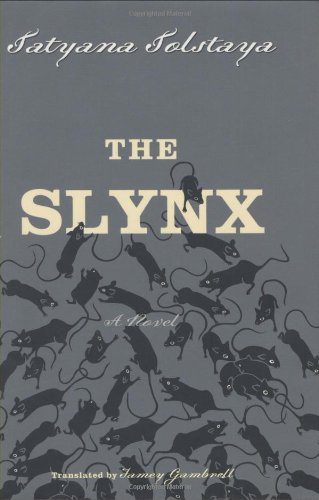

Tolstaya's attempts to make him an allegorical figure are obvious and forced. Tolstaya effortlessly infused her portraits of the fools and dreamers in her short stories with sympathy and humor, she struggles in this volume to depict Benedikt as a villain: he's a cardboardy, fairy tale creature, all symbol with no flesh or bones. He loves books as objects, but fails to understand the meaning of their words he thinks of himself as a civilized man and a protector of art, but ends up becoming a barbarous murderer and thief.

The novel takes place some 200 years after ''the Blast'' - an apparently catastrophic nuclear event that left many of the inhabitants of what was once known as Moscow with terrible physical mutations - and concerns the adventures of a numbskull named Benedikt: a foolish, self-centered dolt, thoroughly ignorant of history and thoroughly devoid of moral intelligence. Rather, ''The Slynx'' is a leaden-footed futuristic satire, quite devoid of wit and incisive insights. What's curious about her first novel, ''The Slynx,'' then, is that it displays none of its author's copious and varied gifts. While her luminous, haunting stories most insistently recalled the work of Chekhov, mapping characters' inner lives and unfulfilled dreams with uncommon sympathy and insight, those books also showcased the author's Nabokovian love of language and her affinity for strange excursions into the surreal, reminiscent of Bulgakov and Gogol. With her first two collections of short stories, ''On the Golden Porch'' (1989) and ''Sleepwalker in a Fog'' (1992), Tatyana Tolstaya, a great-grandniece of Leo Tolstoy, revealed herself to be the heir to several great Russian literary traditions.


 0 kommentar(er)
0 kommentar(er)
